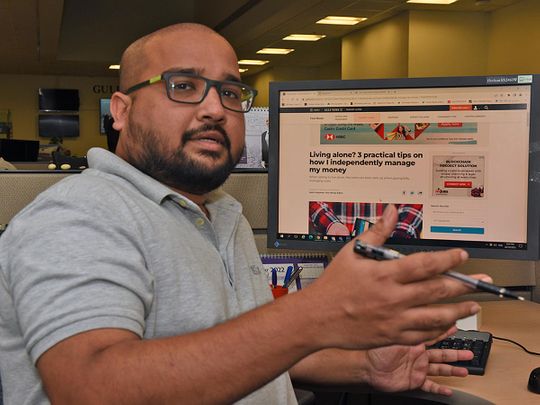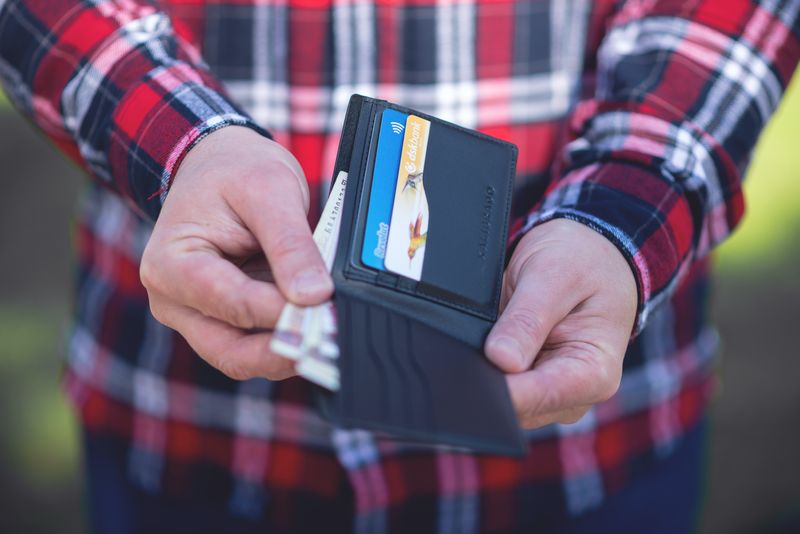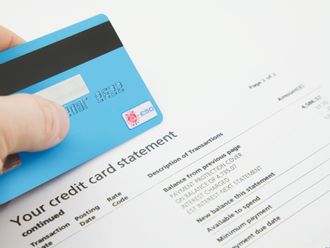
Dubai: When opting to live alone, the costs can soon rack up when paying the bills and managing routine expenses. I realised this as soon as I started living alone in Dubai a little over three years ago.
While living alone has its perks, paying bills isn’t one of them. From claiming shopping discounts to tracking everyday costs, seeking to cut the cost of living by yourself requires a degree of fiscal discipline.
Tip #1 – Prepare for fixed or variable expenses beforehand by tracking routine bill payments
Compiling a master budget that includes fixed and variable expenses has helped me manage my spending and obtain financial freedom while living solo. But how did I go about making a budget?
• Draft a list of fixed monthly expenses (rent, monthly EMI payments, utilities, etc.)
• Determine a spending value for variable expenses (groceries, cooking gas, etc.)
• Keep receipts and record spending using Excel
• Adjust budget after the first month
• Stick to saving or paying off a certain amount of debt (credit card dues or loans) each month
By following the steps listed above, I was easily able to draft a ‘master budget’ to take control of my expenses, track my progress and record monthly spending.
When living alone for the first time, always have essential supplies on hand. Supplies to be purchased in bulk include non-perishable foods, cleaning supplies and other items you will use daily.
In addition to purchasing essentials in bulk, I often try to modify my shopping list to buy less. I used to live with a group of people earlier, so I had become used to a weekly grocery store binge.
However, when living alone, it was unlikely I would be able to eat the same amount of food before it goes bad. Good news: shopping smaller, wasting less and buying less will save you money.

Tip #2 – Cut costs with meal plans, set up separate savings account, invest in insurance
Planning meals in advance is a great way to save money, time and food wastage. At the beginning of each week, making a list of the meals I want to eat each day makes my weekly shop or ordering-in easier.
Setting up a deposit from my current salary account to a savings account and treating it like a regular outgoing, helps save and also set aside money for investing in future goals.
Most experts recommend saving at least 20 per cent of your income each month, but I had to set up a budget sheet and work out what this is. A lesson I’ve learnt is that once I began saving in different ways, the reality is I had more to save than I originally thought.
Also, purchasing renter’s insurance is a good idea as landlords don’t cover theft — and if, like me, you are not at home most of the day, budgeting to buy renter’s insurance is key. Most policies also include tenant's liability cover for accidental damage to your landlord's items.
When it comes to setting aside money for home or renter’s insurance, affordability was not a concern, as home insurance can cost as low as Dh21 per month, which amounts to Dh240 per year. Apart from renter’s insurance, I also pay monthly premiums for a long-term life insurance policy.

Tip #3 – Plan for unforeseen emergency expenses with a go-to cash cushion
A good rule of thumb you might’ve heard is, in the event of an emergency, everyone should have a financial cushion substantial enough to cover three to six months’ worth of living expenses.
And while there’s no arguing the soundness of the widely-accepted advice, I honestly don’t target as many months of savings apart from setting aside 10 per cent of my salary in a separate savings account, while investing around 10 per cent every month in insurance and other assets.
So even if I don’t have half a year’s salary resting in my savings bank account, I realised that having some money set aside is better than none. This is why I also personally prefer keeping 5 per cent of my monthly income in cash and leaving it untouched unless there’s a dire emergency. This is a one-time affair.
While there are several ways to build emergency savings, from setting aside loose change at the end of the day and depositing it in the bank by month-end, to having a percentage of your pay auto-stashed in your savings account, many first-timers also use this rule of budgeting – which I loosely follow as well.
• Essentials: 50 per cent of your income
• Wants: 30 per cent of your income
• Savings: 20 per cent of your income

Key takeaways when managing, saving money while living alone
It can help to adopt a sustainable mindset that generally guides individual spending over the next year.
One advantage of having a solo income is the ability to know exactly what money is coming in and out and be able to control it. Planning ahead, budgeting and slotting in dates to do the things you most enjoy means you will be financially prepared at the same time as having something to look forward to.
Living alone also taught me to be aware of and track the cost of everything I buy – from food items, household items and clothing to financial products and services. That way, I was able to notice when prices rise and when I might have to review my monthly budget plans.
Prioritise spending for the next year – identify what fixed costs are – like mortgage or rent, energy, food and commuting and set aside that amount every month. If planning for a year seems too difficult, I would suggest to try at least planning for three to four months at a time.












